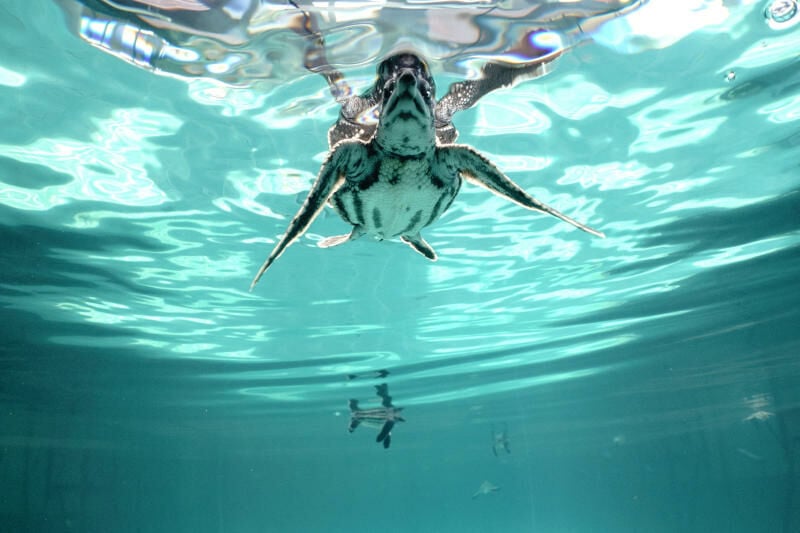Shell-abrate: Phuket releases baby leatherback turtles into Indian Ocean

Eleven baby leatherback sea turtles have been released into the Indian Ocean off the coast of Phuket, Thailand. Marine conservationists are hopeful these turtles will thrive in the wild and return to lay eggs in approximately two decades.
These young turtles, each around the size of a rugby ball and a year old, are the result of an intensive conservation effort initiated after the endangered species was discovered laying eggs in southern Thailand in 2018.
Pinsak Suraswadi, Director-General of Thailand’s Department of Marine and Coastal Resources, stated that while stronger turtles managed to make their way into the ocean, a programme was set up to nurse the weaker ones that perished after hatching.
“It’s necessary for us to study the travel routes of the baby turtles to understand where they are going so that we can implement measures to protect the leatherback turtle while they are hatching from their nests.”
Equipped with tiny satellite tags, these turtles are part of an international initiative led by the non-profit organisation Upwell Turtles. The tags will help monitor their journey and gather crucial data for their protection.
Thailand is one of five countries, alongside Sri Lanka and Canada, capable of successfully raising this species of baby turtle to their first year. Leatherback turtles typically lay eggs after 20 to 25 years.
Senior fishery biologist Hirun Kanghae expressed his optimism about the programme’s success.
“I’m happy to know whether our effort in nurturing the leatherback sea turtles for a year proves fruitful or not. If they survive, it answers everything about the conservation and population restoration of the leatherback sea turtles in the best way possible.”
Despite surviving for over 150 million years and outlasting the dinosaurs, leatherback turtles are now critically endangered in the Pacific region. The World Wildlife Fund (WWF) estimates their population in the Pacific to be fewer than 2,300 adult females, reported Bangkok Post.
The newly released turtles still face significant threats from fishing gear, plastic waste, and exposure to toxins. Conservationists hope that by tracking their movements, they can implement effective measures to safeguard these turtles as they mature and eventually return to laying eggs.
Latest Thailand News
Follow The Thaiger on Google News:


























